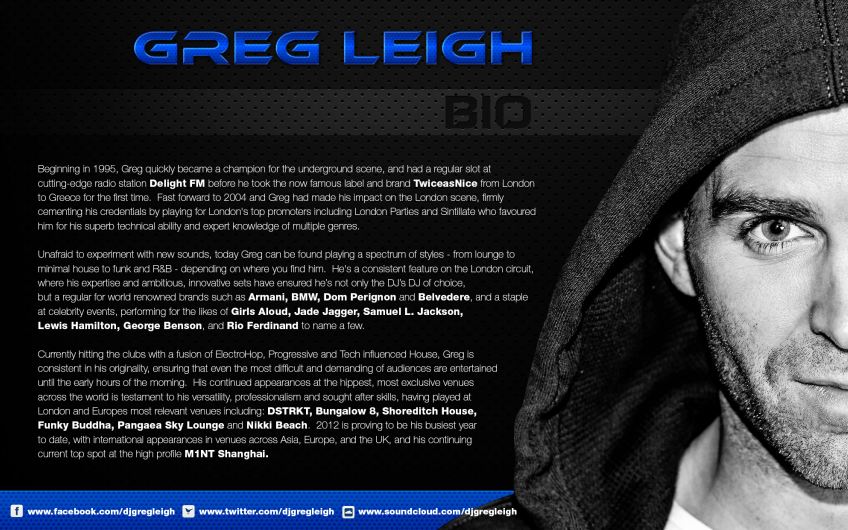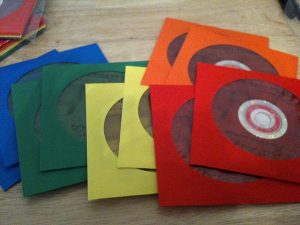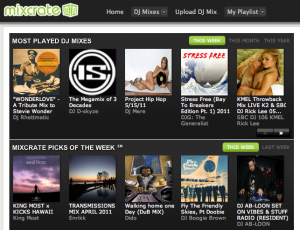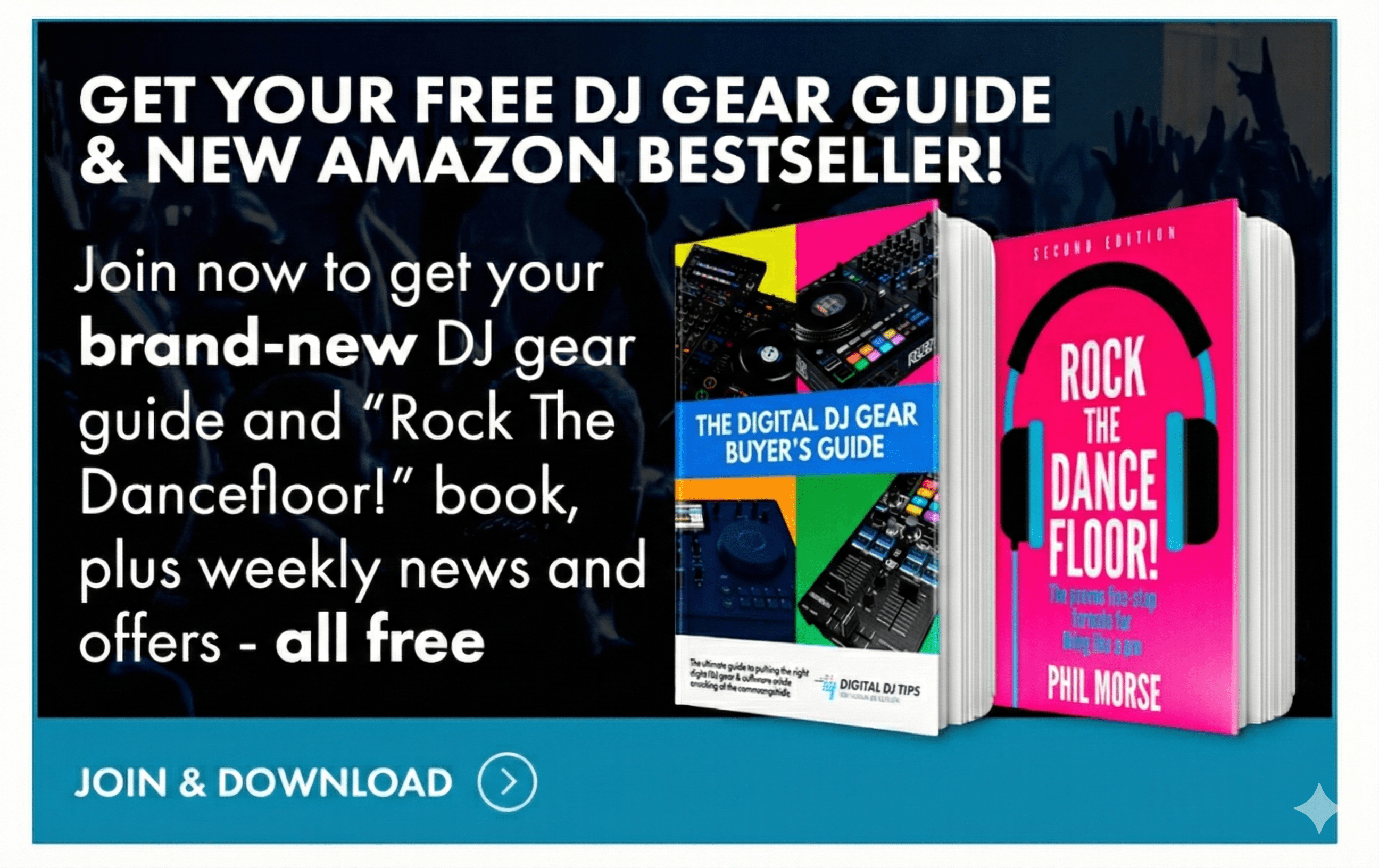
No matter how good you might think you sound in your bedroom; or even how many friends, colleagues and fans say you sound amazing: A DJ’s prime marketing tool is his demo. From cassettes to CDs to digital, giving samples of your work is how you show your skill.
Today we’re going to go right into best practices I’ve seen in making demos, and why you might want to think about these when you go to make your promotional mixes. Small mistakes beyond the actual mix could cost you the gig and help your competition beat you.
Demo mixes…
We live in the age of the internet and iPods, yet CDs are still a must in this game. I’ve seen some DJs succeed on MP3 demos alone, but I still think CDs are not yet obsolete as a promotional tool. They are a material object you can hand to someone and thus they can hear your work at their own leisure. It’s a business card with audio attached to it. One could email links to MP3s, but those emails could end up in spam folders or just overlooked. A CD can sit there and call to someone to play it.
Despite their necessity, you should also make and keep digital copies of your mixes as well. Every mix serves a purpose and can be repurposed beyond the person you’re aiming your demo at. So you might record a house mix for a promoter, but why not share it with your fans as well? Why do all the work to make a solid mix and only share it with one person?
Cater your mix to the person it’s for
Having said that, when you’re out wheeling and dealing to get gigs, you can’t just make one mix and hand it to every promoter. You need to first study the promoter, their events, what DJs they have play, and what those DJs play. Study their crowd and what tastes in music they have. Just because three different promoters are all doing Top 40 nights doesn’t mean one basic Top 40 mix will do.
Maybe one promoter likes to hear a lot more slower tempo music (rap, R&B) while another only wants up-tempo dance music (like house). One promoter might just hire locals and another one just books bigger headliners and only looks to other DJs as openers. Giving a demo that contains music they might not like will only hurt your chances, and thus you’re better off custom-making a specific demo mix for each of those promoters.

Imagine in the underground scene when you deal with a bigger plethora of specialised tastes. One mix alone won’t cater to everyone. It’s the same with all potential gig.
You should also cater your demo to the timeslot you want. Probably the biggest complaints I’ve heard out of promoters are how many demos they get of DJs playing all the big headlining anthems. In their eyes if they wanted that, they would book a bigger name DJ who guarantees numbers through the door.
What they want are opening DJs, and they’ll take seriously the DJ who gives them a demo of an early-night set. This is why you can’t just blatantly hand out mixes to promoters without studying what they’re doing first, as outlined in earlier articles in this series.
Make sure your mix represents your live performance
This is a tricky one. I’ve seen many DJs go into their home studios and use Logic, Ableton Live, or ProTools to produce a very refined and flawless mix, even editing and remixing to create a very good set, but not a mix they could perform live in a club.
I’m sure you could wow many people with your studio talents, but if you show up to play and can’t perform just as well, that will hurt you in the long run. If you like to go all-out in the studio, then do it for your fans. Make that the mix you throw up on the internet and give out to fans at your shows, but make your demo a true representation of what you can do in a DJ booth. Especially now with the advances of software, many of those tricks can be produced in a DJ booth.
Make it the right length
I’ve seen too many mixes online that were only twenty minutes long, and I felt they didn’t show a DJ’s skill at all. The usual rationale I’ve heard is that the DJ felt that no one wanted to sit through a 60 to 80 minute set, but they neglected to see that people do it already. They go out and stay out for hours on end, and a short mix will not give a real representation of you.
Plus I’ve found the more you record yourself doing longer live sets, the better you’ll get at playing those sets live. If you have to go short, then don’t go any shorter than thirty minutes. However, definitely go no longer than eighty minutes.
I also recommend you cut your mix into separate tracks when you burn them to CD. Learn how to burn CDs without the two second gap in between the tracks so people can listen to your mix from start to finish or skip around if they see fit. I’ve noticed many promoters will listen to the first two or three blends to see if the DJ can mix, then skip through the demo to see what he’s playing. Your goal is to impress the recipient, not annoy them.
Invest in the means to add art
Since the first mix I ever made (on cassette), I’ve been making inserts and/or labels. Even on CDs I immediately got into how I could add art onto the disc. I’ll tell you, this will impress many and show you’re more serious than the guy who just scribbles his name and cell phone number on the disc with a Sharpie.
Most CD/DVD writers now will offer LightScribe, which will burn an image on the back of a CD. I’m personally a fan of colour, so I went with printing on the CD. Epo¡son has had a long-standing line of inexpensive printers that will allow you to place an inkjet printable CD on it and print full-colour art onto the disc. LightScribe or Inkjet Printer, your choice will come with software solutions to help you design your art and print it. If you are more creative, download a free copy of GIMP, a free open-source Photoshop alternative, and design your own album art.
In terms of what you put on the disc, bear in mind this is first and foremost your business card, so you need your name and contact information. If you have a website, put the address. Some like to also put a tracklisting, but I never do.
Maybe I’ll buy CD envelopes and print right on the envelope, or print the list on a small piece of paper and put it in the envelope with the disc. My reason is I don’t want to clutter the disc and thus have the important information show prominently.
Pushing digital

While I stand by that CDs are still necessary in demos, don’t let a good mix go to waste. Make an MP3 of the mix, and add your info to the ID3 Tag: even that art you just made for the disc you can place into the file as album art. Throw the mix online, and spread your name.
First, don’t upload your mix to a share service like RapidShare and spread the link. Those services have a limited amount of time you can use them and are even limiting file sizes. Plus there are many free services you can use now that will get you better results. Mixcloud, MixCrate, Let’s Mix, Mix.dj, House-Mixes.com… there’s plenty of choices. Just avoid SoundCloud as it isn’t DJ mix friendly.
Now in terms of “which one?” I say “all of them”. Why not? Uploading your mix on one site means you will only get one set of users. Five sites means five possible places people can find you. Add to that pushing the links on Facebook and Twitter will only help you grow.
Take advantage of all the free services and upload any mix you make that you think people should hear. It could be the custom demo you made for one venue or a general mix you just want to give out.
Going beyond a demo mix
First and foremost, your demo is about promoting your services as a DJ. In most cases a mix CD is the ideal solution, but sometimes other possibilities can get you much better results. I’ve seen mobile DJ companies give out DVDs instead of video recordings from events they played and thus showed the quality of their services at weddings and other events. Some even put these videos on YouTube.
Speaking of YouTube, those ten-minute mixes and podcasts people upload do bring results, so don’t rule that out as an alternate demo to help you gain new fans.
Another idea is to give out a disc of your productions and homemade mashups, or even give such a disc along with a demo mix. The idea is that this will show your many talents and even how you are a bit beyond the normal DJ. This might help with some avenues, especially with more underground event promoters. Plus CDs of promotional tracks for DJs can help you win them over to your side, and they might toss your name to their bosses and get you a guest spot.
The press kit…
With the DJ industry and the music industry now hand in hand, press kits are a big boost for many DJs looking to become bigger names not only in their own towns but abroad. It’s not just a demo CD, but a small portfolio of everything about you and thus a means to push you as a serious DJ and even artist.
You would send a press kit to clubs and promoters in other cities and countries as a means to gain interest. Most management companies who have DJs as clients will use press kits as a means of promotion.
It’s not very hard to make a press kit, but it requires a little work, ingenuity, and creativity.

First you need to make one or two demo mixes. If you produce tracks then include a CD of your work.
You’ll also need an artist bio telling briefly of who you are, what you do and what you’ve done. This is just good practice in general for when you might need a bio for a web site, social media site, or other purposes.
I usually suggest a bio of a few paragraphs like you’ll see other artists have, then a shorter bio of one paragraph or a few sentences. Sometimes promoters will want this to post on the internet when they book you to play. Lord knows most rave promoters post small bios next to DJ names when they promote events on the internet.
Photos are also a must. You need photos that look like you’re more than just some kid in his bedroom playing music. Your photos should send out your sense of style and what “personality” you’re selling, basically your brand. So photos of you sipping coffee at an outdoor cafe won’t help if you’re trying to get into the hip-hop market.
One big tip I’ll toss out there is not to pose with gear of any kind unless it’s at a gig. Don’t hold records, or wear headphones, or stand there holding a CDJ. You’ll just look lame. However, if you get the opportunity to play at some cool looking spots (regardless if they have a packed house), get a friend to take photos of you playing. That shot of you playing in the big booth at the big event will do a lot in selling you. Take a few photos that sit both in landscape and portrait orientation. (If someone needs to put you on a flyer, you’re giving them options.)
Finally, make it a point to collect press materials to include. When you’re booked for an event and flyers are printed, keep five copies of the flyer for your records and either scan the flyer into a digital file or ask for digital files of the flyer from the promoter. When you package your press kit you’ll want to include some printouts of some of these flyers as well as any other press. If a blog or publication mentions you, save it. It’s all showing you’re a bigger player than the hundreds of guys just handing out CDs.
If you have a web site, you might also want to package up the press kit, sans mixes, as a PDF or zip file of items and place it on your site, so if someone asks for it long distance you can offer them an instant result. There are websites that specialise in electronic press kits, or EPKs) for artists and DJs, but be wary that you may be sacrificing your brand to someone else’s if you use a generic EPK service.
Summary…
As stated in previous articles, much of this industry is about branding and marketing. Your demo is merely one of the tools, like your logo, brand image, name and so on. Demo mix or press kit, your promotional materials should be an accurate representation of who you are, how you play, and what you’re selling. Always think of the total brand packaging when you’re making demos to give out.
Next week, we’re getting offline and hitting the streets. Whether you just want to spread your name or you have an actual event to promote, there is a right way and wrong way to street promote.
Check out the other parts in this series:
- How To Succeed At DJing, Part 1: What Type Of DJ Do You Want To Be?
- How To Succeed at DJing, Part 2: Play the Popularity Game
- How To Succeed at DJing, Part 3: Get Involved in Your Local Scene
- How To Succeed at DJing, Part 4: Join an Entertainment Firm or Promotion Crew
- How To Succeed at DJing, Part 5: Make it a Full-time Effort
- How To Succeed at DJing, Part 6: Accept This Is the Music Industry
- How To Succeed at DJing, Part 7: Market Yourself Like a Pro
- How To Succeed at DJing, Part 8: “You Only Get What You Give”
- How To Succeed at DJing, Part 10: Hit the Street
- How To Succeed at DJing, Part 11: Promote Yourself Online
- How To Succeed at DJing, Part 12: Build Yourself a Website
- How To Succeed at DJing, Part 13: Think Beyond Gigs
What mix format works best for you? Have you made a press kit and got any bookings off the back of it? Let us know your thoughts and experiences in the comments please.








